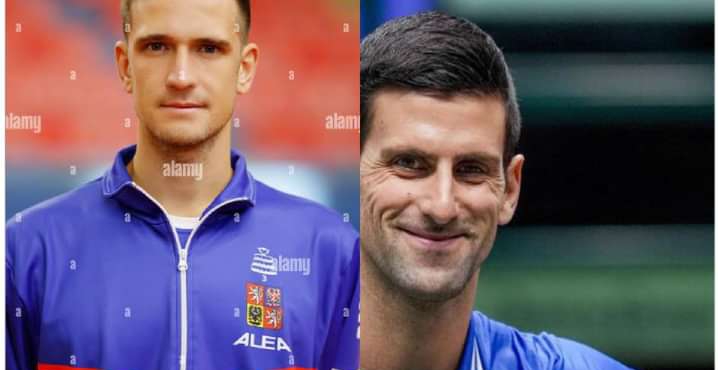CELEBRITY
Kopriva has been waiting for this moment all his life. He promises to make Novak Djokovic cry without anyone to console him, even calling Djokovic a scandalous and foolish Serbian.”

Kopriva has been waiting for this moment all his life. He promises to make Novak Djokovic cry without anyone to console him, even calling Djokovic a scandalous and foolish Serbian.”
Vít Kopřiva is a professional tennis player from the Czech Republic. He was born on June 15, 1997, in Bílovec, Czech Republic. Kopřiva turned professional in 2016 and primarily competes on the ATP Challenger Tour and ITF Futures Tour.
Kopřiva’s career highlights include reaching the semifinals of the 2021 Swiss Open Gstaad as a qualifier, where he notably defeated Denis Shapovalov, who was ranked 10th in the world at the time. This victory made him the lowest-ranked player to earn a top-10 win since 2017
In terms of playing style, Kopřiva is known for his strong backhand and prefers playing on clay courts. His favorite tournament is the Swiss Open Gstaad, and his tennis idol is Roger Federer. Off the court, he enjoys football and ice hockey, supporting teams like FC Banik Ostrava and Chelsea FC. He also likes reading, with Dan Brown being one of his favorite authors, and enjoys Italian and Czech cuisine
As of 2024, Kopřiva has a career-high ATP singles ranking of No. 123, achieved in February 2022. He has won multiple ITF titles across different countries and continues to compete in various ATP Challenger and ITF Futures events
In the world of tennis, rivalries and competitive spirit often give rise to intense moments both on and off the court. The statement “Kopriva has been waiting for this moment all his life. He promises to make Novak Djokovic cry without anyone to console him, even calling Djokovic a scandalous and foolish Serbian,” captures the essence of such intensity. It highlights the aspirations of Vít Kopřiva, a relatively lesser-known player, and his bold challenge to Novak Djokovic, one of the sport’s legends. This narrative explores the significance of this moment, the background of the players involved, and the broader implications for the sport of tennis.
In tennis, the psychological aspect of the game is as crucial as physical skill. Players often engage in mind games, using words and actions to unsettle their opponents. Kopřiva’s bold promise to make Djokovic cry can be seen as an attempt to gain a psychological edge. By publicly challenging Djokovic and using provocative language, Kopřiva aims to disrupt Djokovic’s mental focus and confidence.This strategy is not uncommon in sports. Throughout history, athletes have used trash talk and psychological tactics to gain an advantage. Muhammad Ali, for example, was renowned for his verbal sparring with opponents, which often left them rattled before stepping into the ring. In tennis, players like John McEnroe and Nick Kyrgios have used their fiery personalities to unsettle opponents. Kopřiva’s approach, while bold, follows a similar playbook aimed at shifting the psychological dynamics of the match.
The reference to Djokovic as a “scandalous and foolish Serbian” adds a layer of cultural tension to the narrative. National identity often plays a significant role in sports, with athletes representing more than just themselves; they embody the hopes, pride, and identity of their nations. Djokovic’s Serbian heritage is a core part of his identity, and his success has been a source of immense pride for Serbia.However, this also means that criticisms and controversies surrounding Djokovic are often viewed through the lens of national identity. For Kopřiva to label Djokovic in such terms is to challenge not just the player but also what he represents. It can evoke strong reactions from fans and adds a nationalistic dimension to the rivalry. This dynamic is prevalent in many sports, where national pride and rivalry heighten the stakes and emotions involved.











